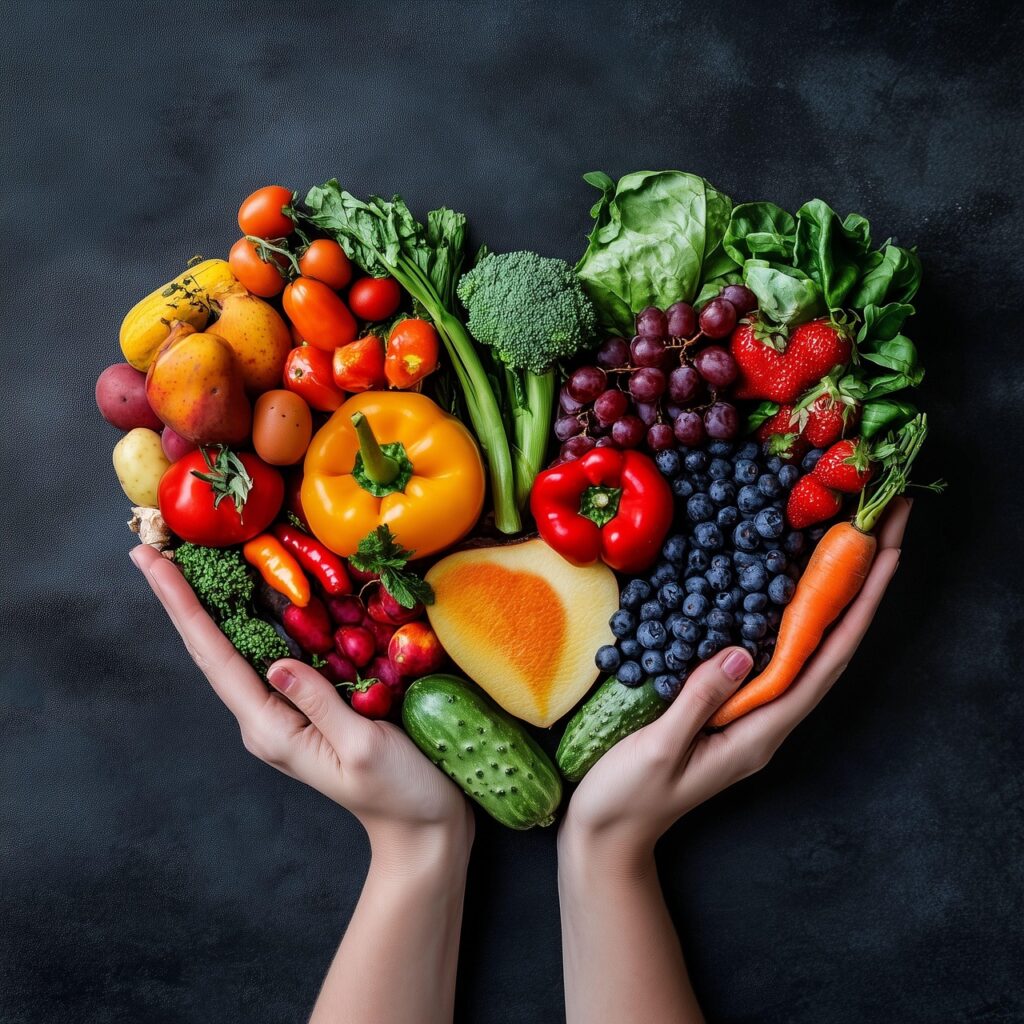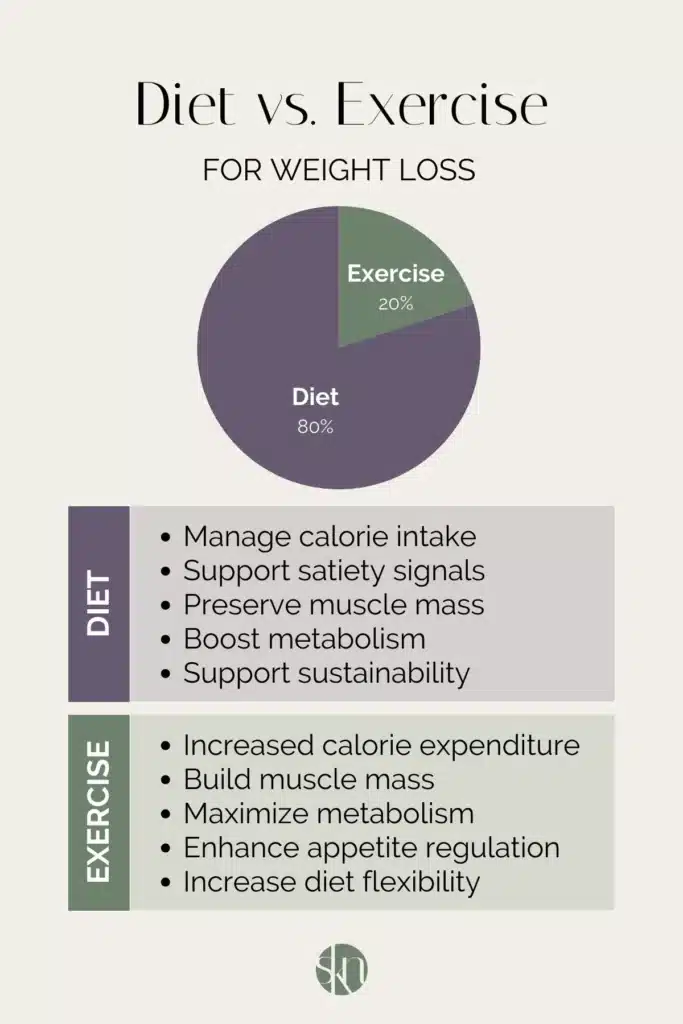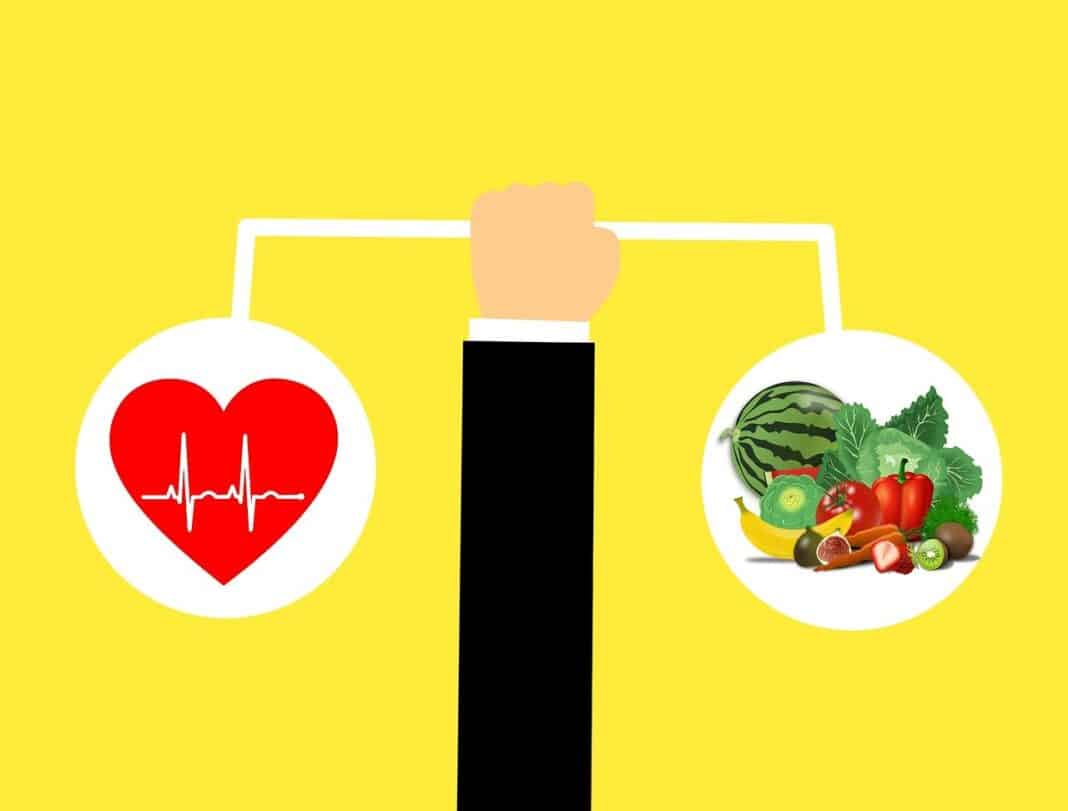Diet vs. Exercise: Finding the Right Balance
Introduction
Diet vs. Exercise — when it comes to maintaining a healthy lifestyle, two pieces of advice dominate the discussion: eat a balanced diet and exercise regularly. But if you had to prioritize one over the other, which has a bigger impact on your overall health – diet or exercise? The truth is that both nutrition and physical activity are crucial, working hand-in-hand to improve well-being. However, understanding the role each plays can help you make smarter health decisions. Let’s break down how diet and exercise individually contribute to health, and why a combination of the two is ultimately the best approach.
Diet vs. Exercise: The Role of Diet in Health
There’s a popular saying in fitness: “You can’t outrun a bad diet.” This highlights how significant nutrition is in the Diet vs. Exercise debate. Diet (what you eat) is the fuel for your body. The quality and quantity of that fuel directly affect bodily functions, weight management, and disease risk. A healthy diet provides essential nutrients – vitamins, minerals, protein, healthy fats, and fiber – that your body needs to function optimally. For example, proteins are the building blocks for muscles and tissues, calcium and vitamin D support bone health, and antioxidants from fruits and vegetables help repair cellular damage. If your diet is lacking in these nutrients, no amount of exercise can fully compensate for those deficiencies.
Moreover, diet has a direct impact on body weight. To lose weight, you must consume fewer calories than you burn fewer calories than you burn, a central point in the Diet vs. Exercise debate. It’s generally easier to cut calories through diet than to burn a huge number of calories through exercise. Consider this: a slice of pizza might contain about 300 calories, which you could eat in minutes. To burn 300 calories, you might need to run for half an hour or more. Thus, consuming excess calories (especially from sugary or fatty foods) can quickly outpace what you burn off. Numerous studies have shown that weight loss is predominantly driven by dietary changes. People who focus on portion control and healthier food choices tend to lose more weight than those who try to “exercise off” a high-calorie diet. Beyond weight, diet affects other health markers: too much salt can raise blood pressure, too much added sugar can increase the risk of type 2 diabetes, and diets high in unhealthy fats can contribute to heart disease. On the flip side, a nutritious diet can reduce those risks – for instance, diets rich in fruits, vegetables, whole grains, and lean proteins are linked to lower incidence of chronic diseases.
“You can’t outrun a bad diet.” Nutrition lays the foundation that exercise builds upon.

The Role of Exercise in Health
The Diet vs. Exercise debate shows diet provides fuel, while exercise uses it to build strength. Regular physical activity has profound effects on nearly every system in the body. Firstly, exercise helps manage body weight by burning calories. Consistent workouts increase your metabolic rate (how many calories you burn at rest) by building muscle. Muscle tissue burns more calories than fat tissue, so having a higher muscle mass means you burn more energy even when you’re not exercising. This is one reason why combining strength training with cardio can be effective in the Diet vs. Exercise approach for weight management – you burn calories during the activity and also boost your resting metabolism over time.
Beyond weight, exercise offers benefits that diet alone can’t. Cardiovascular exercise (like brisk walking, running, cycling, or swimming) strengthens the heart and improves circulation. This can lower blood pressure and resting heart rate, meaning the heart doesn’t have to work as hard to pump blood. Regular cardio exercise is strongly linked to a reduced risk of heart disease, stroke, and certain cancers. Strength training and weight-bearing exercises (like lifting weights, resistance exercises, or even bodyweight exercises like push-ups and squats) strengthen bones and muscles. This is crucial as we age, because it helps maintain bone density (warding off osteoporosis) and muscle mass, which can decline with age. Maintaining muscle strength also improves balance and reduces the risk of falls in older adults.
In the Diet vs. Exercise discussion, exercise has unique mental health benefits. Physical activity releases endorphins – natural chemicals in the brain that act as mood lifters – which can reduce feelings of stress, anxiety, and depression. Many people report better sleep and higher energy levels when they maintain a regular exercise routine. It’s also worth noting that exercise can improve insulin sensitivity, helping the body regulate blood sugar levels more effectively, which is particularly important for preventing or managing type 2 diabetes. In summary, while you can’t exercise your way out of a bad diet for weight loss, you also can’t eat your way to a stronger heart or muscles – that’s where exercise shines in the Diet vs. Exercise debate.

Finding the Right Balance in the Diet vs. Exercise Debate
So, which matters more in the Diet vs. Exercise debate? The honest answer from health experts is both are essential and they complement each other. Think of diet and exercise as two sides of the same coin. Diet provides the raw materials and energy your body needs, while exercise uses those materials to build strength and endurance, and triggers beneficial changes in the body. Focusing on one while neglecting the other can undermine your health goals. For instance, you might lose weight by dieting alone, but without exercise you could also lose muscle mass and end up with a weaker body or a slower metabolism. Conversely, if you exercise a lot but eat poorly, you might negate the benefits of workouts by not giving your body the nutrients it needs to recover, or by consuming so many calories that you gain weight despite exercising.
For weight management, many experts say nutrition is about 70% of the equation and exercise 30% a popular Diet vs. Exercise ratio.. This emphasizes that you can’t ignore your eating habits. However, for overall health, longevity, and quality of life, exercise might contribute an equal share because of its broad impacts on cardiovascular health, mental health, and functional fitness. Consider also that a good diet can give you the energy and focus needed to maintain an exercise routine. Eating a heavy, unhealthy meal can make you feel sluggish, whereas a balanced meal can fuel a great workout. On the flip side, regular exercise can inspire better eating – people who work out often become more mindful of what they eat, not wanting to “undo” their hard work, which creates a positive feedback loop for health.
Synergy is key: a balanced diet rich in whole foods (vegetables, fruits, lean proteins, whole grains, healthy fats) combined with a mix of exercises (cardio, strength, flexibility training) is the winning formula. For someone starting their health journey, a practical approach is to make gradual improvements in both areas. You could begin by adding one more vegetable or fruit to your daily diet and incorporating a 30-minute walk into your routine. Over time, step up the changes: replace processed foods with home-cooked meals, and turn those walks into jogs or gym sessions. Small, consistent changes in the Diet vs. Exercise balance accumulate significant health benefits over months and years.
In conclusion, asking whether diet or exercise is more important is the classic Diet vs. Exercise question – both are vital. Your diet forms the foundation of health by nourishing your body, while exercise builds on that foundation to strengthen and protect it. By paying attention to what you eat and staying physically active, you’re giving yourself the best odds proving the value of the Diet vs. Exercise balance for a healthy, energetic, and fulfilling life. Instead of choosing one over the other, embrace both as lifelong habits. Your body will thank you for it, and you’ll likely feel the difference in both the short term (better mood, more energy) and long term (lower risk of chronic diseases, improved longevity).
Quick Templates (Copy-Paste)
1) 7-Day Balanced Meal OutlineGoal: energy & satiety | Plate rule: 1/2 veg/fruit, 1/4 lean protein, 1/4 whole grains, + healthy fats
Breakfast ideas: {oats+berries+yogurt} | Lunch: {chicken+quinoa+greens} | Dinner: {fish+sweet potato+veg}
Snacks: {nuts, fruit, hummus+veg} | Hydration: {2–3L/day}
2) Weekly Training SplitMon: Full-body strength (45m) | Tue: Cardio (30–40m easy) | Wed: Mobility/Core (20m)
Thu: Upper strength (45m) | Fri: Cardio intervals (20–30m) | Sat: Lower strength (45m)
Sun: Active recovery (walk/stretch)
3) SMART Goal PromptSet a SMART goal for {weight/fitness marker}. Specify baseline, weekly habits (meals, workouts), and a 4-week check-in metric.
Mini-FAQ
Is diet more important than exercise for weight loss in the Diet vs. Exercise debate?
Diet usually drives weight change more directly (calorie balance), while exercise preserves muscle, boosts mood, and supports long-term maintenance.
How much exercise do I need weekly?
In the Diet vs. Exercise context, a common target is ~150 minutes of moderate cardio (or 75 minutes vigorous) plus 2+ days of strength training; adjust to your ability and goals.
Do I need to count calories?
Not always. Some thrive with tracking; others prefer plate-method portions and focusing on whole foods and protein/fiber for fullness.
What’s the best workout for health?
A mix: cardio for heart/lungs, strength for muscle/bone, and mobility for joints. Consistency beats perfection.
Medical disclaimer
This article is for educational purposes only and is not medical advice. Consult a qualified professional for personalized guidance.
Further Reading
- WHO — Physical Activity: Key Facts
- CDC — Physical Activity Basics
- NHS — Eat Well
- Harvard T.H. Chan — Healthy Eating Plate
- American Heart Association — Fitness Basics
